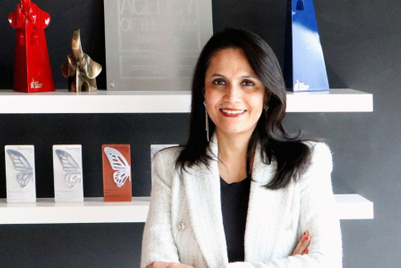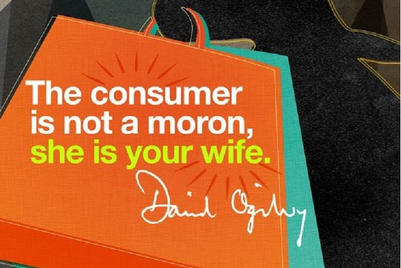
The news and views on this year’s Cannes Lions International Festival of Creativity are finally receding. Trends have been culled, learnings gleaned, awards dissected. But what are we going to do differently to increase our odds of success?
Decades ago, David Ogilvy had an answer when he famously said, “It’s useless to be a creative, original thinker unless you can also sell what you create. Management cannot be expected to recognise a good idea unless it’s presented to them by a good salesperson.”
In short, we need to spend more time on selling our fabulous work. We don't have an idea generation problem. We have an influence problem. Are we prepared to fiercely defend our ideas? Do we help our clients clearly see how our creativity helps grow their business? Do we have patience to persist and overcome every roadblock? If most of the answers are no, then how can we blame anyone but ourselves for not having more ideas that get implemented?
In the words of Seth Godin, “There’s no correlation between how good your idea is and how likely your organization will be to embrace it. None. It’s not about good ideas. It’s about selling those ideas and making them happen. If you’re failing to get things done, it’s not because your ideas suck. It’s because you don’t know how to sell them.”
While there doesn't seem to be a magic bullet to be a successful idea salesperson overnight, three broad and proven strategies can help improve our abilities.
Rapport
Build a harmonious relationship with the decision maker in order to have influence. Suspend your agenda. Empathise with your client. Really get to know them and their business. Listen to them as much as you possibly can. Get into their hearts and minds. Treat their problems like they were yours. All of these elements will improve your credibility and the ability to sell your idea when the rubber meets the road.
Storytelling
Tell a good story to sell your idea. Don’t bombard with facts and figures. Don't say in 100 slides what you can say in 10. Use more visuals and fewer words to be more persuasive and engage your client emotionally. Keep thinking about messages that will resonate deeply. Fire up the imagination of your clients. Get them energised and excited about the solutions you are proposing. How will you make your idea memorable long after you have left the room?
Tenacity
Idea selling does not stop after telling a good story. You have to have build stamina to see the idea through. Don't get defensive when handling concerns the client may have. Think of every objection as another opportunity to strengthen your big idea. Don’t lose your conviction just because your client doesn't have any. Persevere. Stay the course.
Lulu Raghavan is the managing director at Landor Associates, Mumbai. When she's not obsessing about branding she is either cooking up a storm, checking out a new restaurant or travelling somewhere exotic. Follow her other adventures at http://lululovesbombay.



.jpg&h=334&w=500&q=100&v=20250320&c=1)


.jpg&h=334&w=500&q=100&v=20250320&c=1)



.jpg&h=334&w=500&q=100&v=20250320&c=1)


.jpg&h=268&w=401&q=100&v=20250320&c=1)



.jpg&h=268&w=401&q=100&v=20250320&c=1)
.jpg&h=268&w=401&q=100&v=20250320&c=1)

